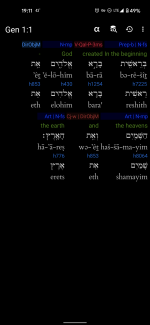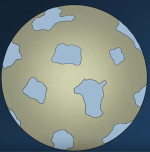Strong's h776
- Lexical: אֶרֶץ
- Transliteration: erets
- Part of Speech: Noun Feminine
- Phonetic Spelling: eh'-rets
- Definition: earth, land.
- Origin: From an unused root probably meaning to be firm; the earth (at large, or partitively a land).
- Usage: X common, country, earth, field, ground, land, X natins, way, + wilderness, world.
- Translated as (count): the land (482), the earth (301), in the land (275), of the land (202), of the earth (184), land (60), out of the land (57), to the ground (57), a land (56), from the land (52), Earth (36), on the earth (34), in the earth (33), the ground (24), to the land (24), the country (22), and the land (21), in land (20), to the earth (20), on the ground (19), their land (17), your land (17), his land (16), And the earth (15), in your land (15), of the country (12), and earth (11), countries (11), from a country (11), into the land (11), lands (11), through the land (11), of land (10), the countries (10), in a land (9), my land (9), of your land (9), in their land (8), of the lands (8), for the land (7), throughout the countries (7), and from the land (5), country (5), from the earth (5), her land (5), in the country (5), of lands (5), of the countries (5), of their land (5), on earth (5), on the land (5), out of his land (5), throughout the earth (5), to land (5), and in the land (4), and land (4), from the country (4), of his land (4), their lands (4), Through a land (4), through your land (4), to his own land (4), a country (3), an land (3), and your land (3), his own land (3), its land (3), of the world (3), the lands (3), throughout the land (3), whose land (3), and in earth (2), and in the earth (2), and the ground (2), but the earth (2), Ever since the land (2), for His land (2), for your land (2), from a land (2), from the ground (2), in (2), in his own land (2), in my land (2), in my own land (2), in our land (2), in the lands (2), in their lands (2), into our land (2), into the ground (2), like a land (2), like the land (2), like your own land (2), of earth (2), or on earth (2), out of the earth (2), out of the ground (2), over the earth (2), than the earth (2), the countryside (2), then the land (2), to her own country (2), to his land (2), to your land (2), toward the ground (2), Your country (2), a land as (1), a land for (1), a short distance (1), against land (1), against the countries (1), Against the land (1), among the countries (1), an earth (1), and a earth (1), and a land (1), and as well as from the land (1), and in the country (1), And in your land (1), and of the land (1), and our land (1), and out of His land (1), and out of the lands (1), and right to the earth (1), and the from ground (1), and their land (1), and to my country (1), as the earth (1), at the country (1), but the land (1), but the the land (1), by the land (1), common (1), distance (1), escaped (1), for the earth (1), from (1), from off the earth (1), From the floor (1), from the ground up (1), from your land (1), his own country (1), His world (1), in his land (1), in lands (1), in the countries (1), in the ground (1), in the land of (1), in whose land (1), Into a land (1), into their lands (1), is in their land (1), Like the earth (1), like the ground (1), my country (1), my own country (1), No shall have (1), of a land (1), of countries (1), of his own land (1), of our country (1), of our land (1), of the field (1), of the ground (1), of the nations (1), of those countries (1), of those lands (1), of your country (1), on (1), on the floor (1), Or in land (1), out of a land (1), out of ground (1), out of lands (1), out of the country (1), over the land (1), that land (1), the about land (1), the common (1), the distance (1), the land for (1), the nations (1), the shore (1), the territories (1), the world (1), their countries (1), through the countries (1), through the country (1), through the earth (1), through your country (1), thus the land (1), to (1), to a land (1), to his own country (1), to their own land (1), to your country (1), toward the earth (1), under the earth (1), upon earth (1), upon the earth (1), you lands (1), your earth (1), your own country (1). |





